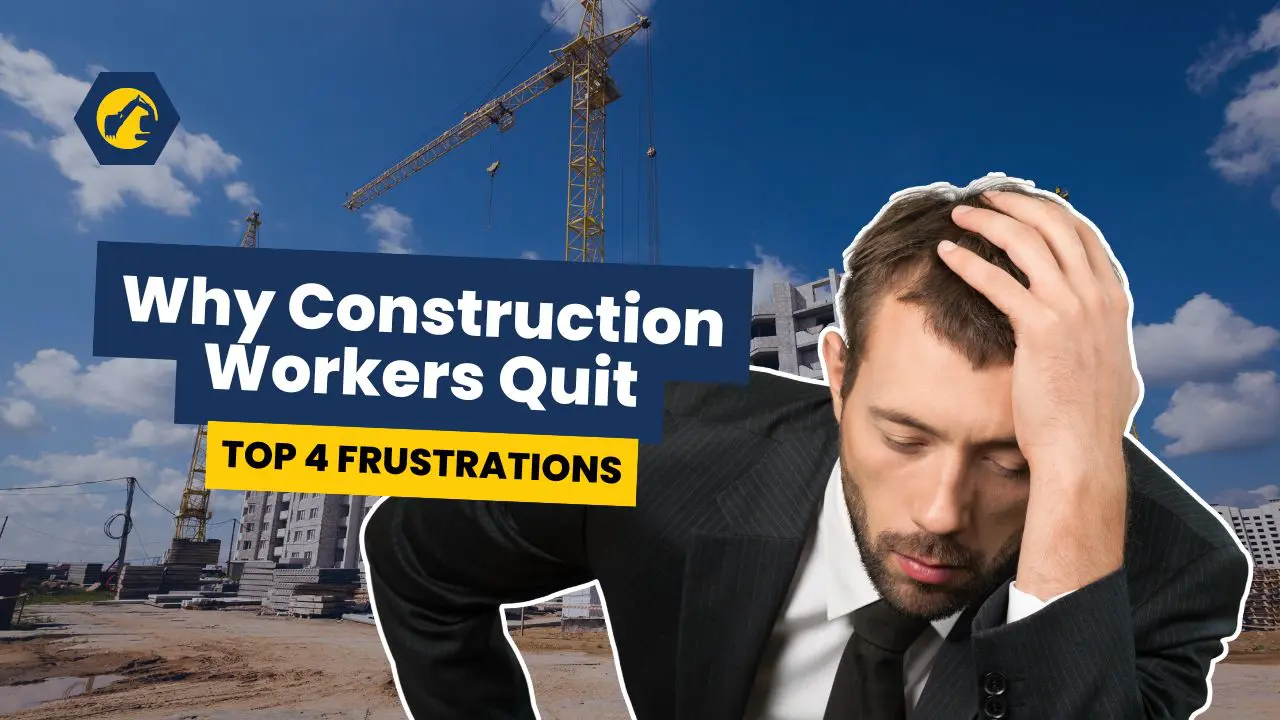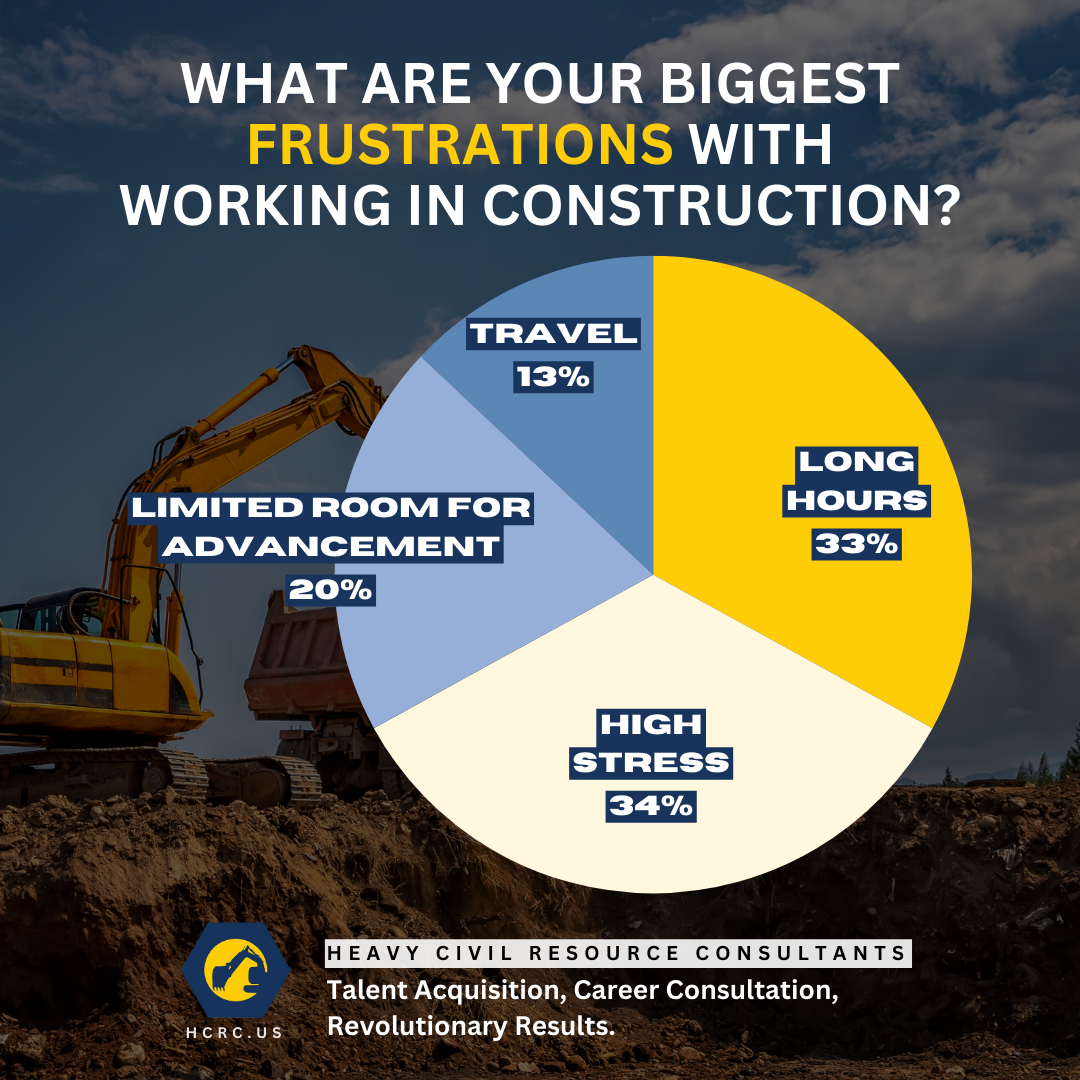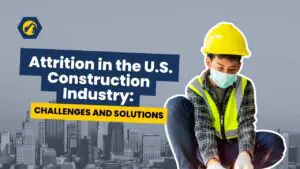
The civil construction industry is built on grit, long hours, and the kind of hard work most people can’t imagine. But behind the pride and resilience, there’s a growing issue that employers can’t afford to ignore: why construction workers quit.
We recently asked industry professionals a simple but important question:
“What are your biggest frustrations working in construction?”
Here’s what they said:
- Long Hours – 33%
- High Stress – 34%
- Limited Room for Advancement – 20%
- Travel – 13%

Let’s break these down and look at what’s really driving people to walk away—and what companies can do to stop it.
1. Long Hours (33%)
Why it matters:
Construction workers often feel like the job consumes their lives—early mornings, late nights, weekends. Over time, this wears people down.
How it leads to quitting:
Fatigue increases safety risks and burnout. When workers feel like they have no time for life outside of work, they eventually check out—either mentally or completely.
What employers can do:
-
Improve project planning to limit unnecessary overtime.
-
Offer rotating schedules or occasional “flex days.”
-
Recognize and reward the extra hours when they do happen.
2. High Stress (34%)
Why it matters:
Between tight deadlines, weather delays, material shortages, and labor gaps, civil construction rarely offers a calm day. The constant pressure builds up.
How it leads to quitting:
Unchecked stress leads to poor health, mistakes on the job, and declining morale. People leave when they feel overwhelmed and unsupported.
What employers can do:
-
Train leaders to support mental health and manage workloads.
-
Build a culture where asking for help is seen as strength—not weakness.
-
Offer tools like Employee Assistance Programs (EAPs) or stress management training.
3. Limited Room for Advancement (20%)
Why it matters:
Many skilled workers feel stuck. Lack of mentorship, unclear career paths, and few internal promotions make it hard to see a future in the field.
How it leads to quitting:
If workers don’t see opportunities to grow, they’ll find them elsewhere—or leave the industry entirely.
What employers can do:
-
Outline clear, achievable career paths.
-
Invest in training and upskilling programs.
-
Promote from within and celebrate internal success stories.
4. Travel (13%)
Why it matters:
Travel is part of the job in civil construction—but long stints away from home and unpredictable schedules take a toll on personal lives.
How it leads to quitting:
Over time, the strain on family and personal well-being pushes workers to seek jobs that offer more stability and time at home.
What employers can do:
-
Provide better travel incentives or improved per diems.
-
Create rotation schedules that balance home time.
-
Prioritize local hiring when possible.
Final Thoughts
Why construction workers quit isn’t a mystery—it’s written clearly in their frustrations. Long hours, high stress, limited advancement, and excessive travel aren’t just part of the job—they’re red flags that lead to turnover.
Addressing these issues isn’t about being soft—it’s about being smart. Retaining talent, improving morale, and building a better culture are competitive advantages in an industry facing a labor shortage.
Better workplaces mean better projects. And that starts with listening to the people doing the work.






